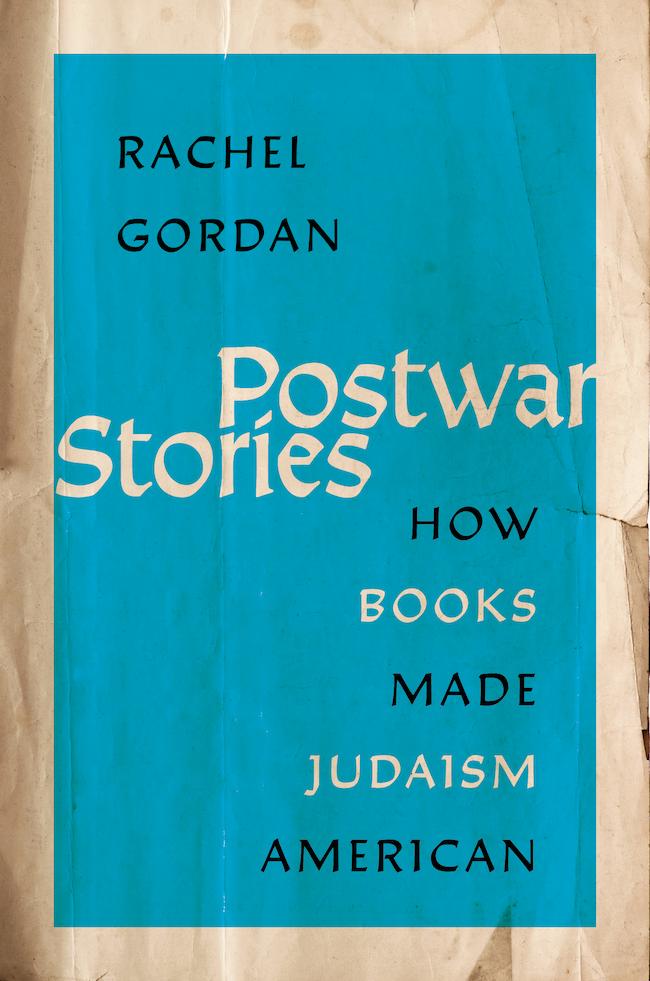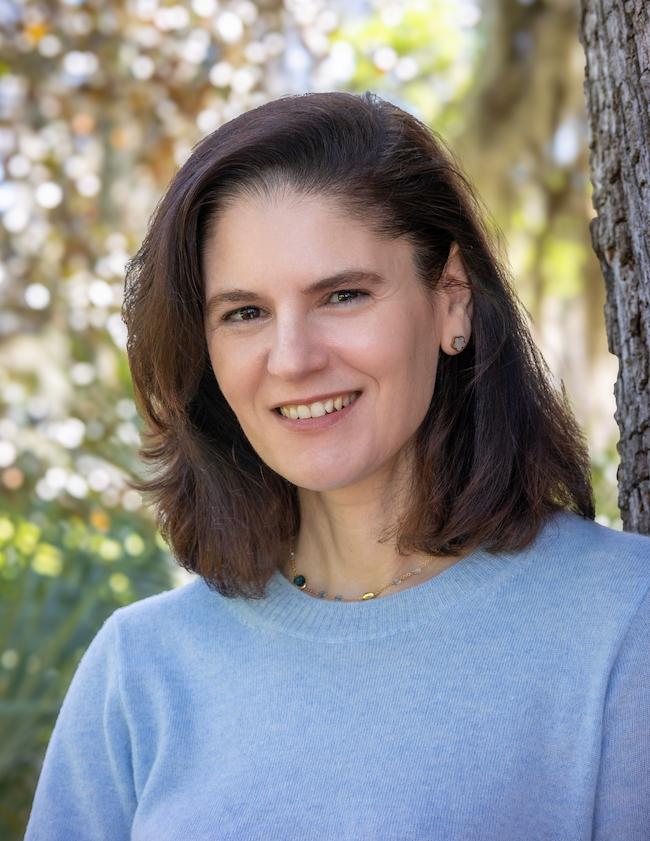Postwar Stories: How Books Made Judaism American

Rachel Gordan
University of Florida
Date: Tuesday, September 10, 2024
Time: 12 - 1pm
Location: 24 Quincy Road, Conference Room
The period immediately following World War II was an era of dramatic transformation for Jews in America. At the start of the 1940s, President Roosevelt had to all but promise that if Americans entered the war, it would not be to save the Jews. By the end of the decade, antisemitism was in decline and Jews were moving toward general acceptance in American society. Drawing on several archives, magazine articles, and nearly-forgotten bestsellers, Postwar Stories examines how Jewish middlebrow literature helped to shape post-Holocaust American Jewish identity. For both Jews and non-Jews accustomed to antisemitic tropes and images, positive depictions of Jews had a normalizing effect. Maybe Jews were just like other Americans, after all. At the same time, anti-antisemitism novels and “Introduction to Judaism” literature helped to popularize the idea of Judaism as an American religion. In the process, these two genres contributed to a new form of Judaism--one that fit within the emerging myth of America as a Judeo-Christian nation, and yet displayed new confidence in revealing Judaism's divergences from Christianity.

Rachel Gordan is the Samuel Bud Shorstein Fellow in American Jewish Culture at the University of Florida where she teaches in the department of religion and the Center for Jewish Studies. During the 2024-2025 academic year, Professor Gordan holds a National Endowment for the Humanities Public Scholars Fellowship at the Center for Jewish History in NYC. She received a PhD from Harvard and her BA from Yale. In addition to her academic publications, Gordan has been published in popular sites including Slate, LitHub, the New York Times website, and Tablet. Postwar Stories is her first book.
Brauner, David. Post-War Jewish Fiction, Ambivalence, Self Explanation and Transatlantic Connections. New York: Springer Publishing, 2001.
Garrett, Leah. Young Lions: How Jewish Authors Reinvented the American War Novel. Illinois: Northwestern University Press, 2015.
Parrish, Timothy. “Philip Roth, Henry Roth and the History of Jews.” CLCWeb: Comparative Literature and Culture 16.2 (2014): doi.org/10.7771/1481-4374.2411.
Schreier, Benjamin. “Making It into the Mainstream,” in The Cambridge History of Jewish American History. Cambridge: Cambridge University Press, 2015.
Shaw, Irvin. The Young Lions. New York: Random House, 1948.
Wade, Stephen. Jewish-American Writing since 1945: An Introduction. Edinburgh: Edinburgh University Press, 1999.
In a recently-published article, Professor Rachel Gordan discusses Betty Smith’s novel, A Tree Grows in Brooklyn, by investigating the great impact it had on readers’ opinions of poverty and the borough itself. While this famed author won many praises from critics, her own attitudes toward Brooklyn exemplified the anti-immigrant beliefs held by many of its residents. Smith moved to Chapel Hill, NC in 1936 and wrote about her childhood in Brooklyn from a distance, as she perceived her hometown to be changing for the worse. Even the Allied victory in 1945 did not stop her from expressing views of antipathy toward new groups of immigrants like Jews and Italians arriving in one of America’s greatest cities. Smith may represent an antisemitic exception in Gordan’s research, however. Gordan will explore numerous “anti-antisemitic” authors of Jewish literature writing during the years following World War II in her upcoming event.

Dr. Rachel Gordan addressing the crowd during her luncheon colloquium.

Photo credits: Christopher Soldt, MTS
Dr. Rachel Gordan kicked off the Boisi Center’s fall events with a presentation about American understandings of Judaism as expressed through Jewish novels in the post-World War II era. Gordan began the event by separating the novels into two categories: “anti-antisemitic” books and books that served as “introductions to Judaism.” She described anti-antisemitic novels as a means to fight against antisemitic stereotypes and discrimination, while “intro to Judaism” novels took advantage of the former’s popularity to explain what Jews actually believe to the largely Christian population of the United States.
In order to demonstrate the context, content, and impact of these novels, Gordon focused her attention on Laura Z. Hobson’s famous work, Gentleman’s Agreement (1947). The book-turned-film tells the fictional story of a non-Jewish journalist tasked with writing a piece about antisemitism. He lives his life pretending to be Jewish so that he can experience what antisemitism is like firsthand. This classic example of an anti-antisemitic novel was intended to give non-Jewish Americans a hint of the Jewish experience. Interestingly, Gordan explained that Hobson saw the novel as an American novel and antisemitism as an American problem, rather than as a novel for Jews about a Jewish problem. Gordan concluded the event by emphasizing the historical relevance of these novels and by engaging in a Q&A that featured questions about whether Judaism is best categorized as a race, religion, or culture. Different people may define Judaism differently, which seemed to be on the minds of audience members as they worked toward understanding the context of Gordan’s authors and what it meant to be Jewish in the 1940s and in the present day U.S. context.

